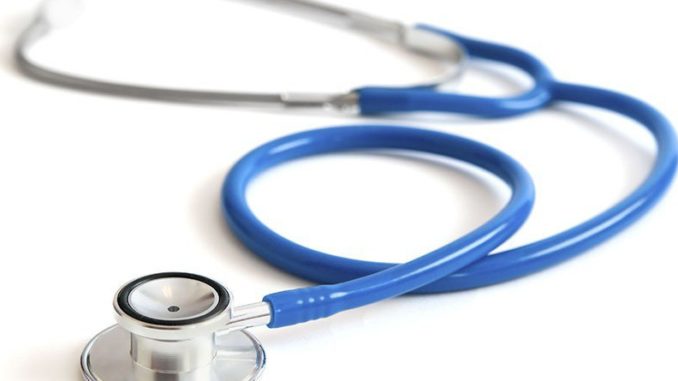
Unlike most business people who have a doctorate, Dr Amy Jadesimi really is a doctor. The accomplished CEO of a major Nigerian logistics company – that is also the country’s first privately-developed port terminal – started her working life as a medical doctor, graduating from the prestigious Oxford University. She worked as an investment banker at Goldman Sachs in London and then did an MBA at Stanford University. She returned to Nigeria, where she became CEO of Lagos Deep Offshore Logistics Base (LADOL), in 2009.
Built out of a ‘disused swamp’ over the last 17 years, LADOL is an industrial free zone. “Since the largest industry in Nigeria is the petroleum sector, we started off by servicing that sector. I don’t consider myself in oil and gas at the moment, but we do service oil and gas companies,” she told me.
“LADOL is unique in many ways, argues Jadesimi (43).”It is 100 per cent Nigerian-owned, the first privately developed port terminal and the first sustainable industrial free zone. It has taken 17 years to reach this stage of development and along the way, we have overcome horrendous hurdles. However, we prevailed because of our sustainable business strategy, which offers our clients 50 per cent cost savings, while maximising the number of Nigerians that are employed and enabling technology transfer.”
She says LADOL is building the world’s first Sustainable Industrial Special Economic Zone (SSEZ) and is using the UN’s Sustainable Development Goals (SDGs) “to build a unique circular ecosystem, servicing a range of industries.”
Founded by her father in 2001, it has been operational since 2006. “Every year since then the infrastructure and facilities have grown and expanded. The Zone now provides a 24/7 efficient, safe and secure location from which local and international companies, in a range of sectors can start operating immediately.”
In 2017, she says LADOL “disrupted the local oil and gas market, halving the costs of local support, and creating thousands of local jobs” and is now “focused on attracting and servicing a range of non-oil and gas companies, in sectors ranging from technology to agriculture. The sectors identified will work together to create a circular economy within the zone.”
West Africa is one of the largest under-served markets in the world with the fastest growing population, she adds. Industrial companies working in LADOL can service this market sustainably and profitably while creating tens of thousands of jobs. As the local market grows, there will be higher demand for locally produced products, a larger skilled workforce and cheaper domestic operating costs, she believes.
“LADOL is a blueprint for the Sustainable Industrialization of Africa, turning Africa’s demographic dividend into a global wealth creation.”
Asked what has been the greatest learning experience in an accomplished career, she says: “I learn new things from working at LADOL every day. Overall, despite the challenges, it has restored my faith in humanity and, from a business perspective, convinced me that for Africa to industrialise we must do it sustainably. When Africa does industrialise, it will create incredible wealth not just for our continent but also for the world.
“This will require innovation, engineering and manufacturing all taking place in African countries, with African’s leading the way. That’s what LADOL is all about – build a sustainable ecosystem that will enable companies to develop new technologies and solutions for the largest growing market in the world, operating in that market.”
Jade Simi’s list of awards is as impressive as she is. She was named Young CEO of the Year by the African Leadership Forum earlier this year; a Young Global Leader by the World Economic Forum (WEF) in 2013; and an Archbishop Tutu Fellow in 2012, where she worked to reduce maternal mortality. She has also been named as a Rising Talent by the Women’s Forum for Economy and Society, one of 20 Youngest Power Women in Africa by Forbes in 2014, and was among the Top 25 Africans to Watch by the Financial Times.
She initially studied medicine, because “I had an interest and aptitude for the sciences in school and I very much valued and enjoyed my time at medical school. Being a doctor has shaped every aspect of my life”.
She took a year off and went into investment banking but wasn’t intending to stay. “However, I learned a lot while I was working in investment banking and realised that I wanted to do something industrial, related to creating real jobs, so I stayed in banking for three years,” she says. “Goldman taught me how a range of companies work, how the markets work and prepared me to manage LADOL, a company that has a large and diverse set of departments – from security to logistics to maintenance.”
She says Stanford is a great business school for entrepreneurs and “it prepared me to work in Nigeria – where we have to be self-reliant a lot of the time. Especially working for a company like LADOL, that is achieving so many firsts.”
“We will be expanding into a range of eight sectors, from agriculture to clean technology. In part, this is because we have identified the sectors that fit best into our circular economy within the zone. In addition, we believe that commodity-rich countries, such as Nigeria, can use their natural resources to develop a diverse set of industries. LADOL is the first and largest example of that development model in action.
Toby Shapshak is editor-in-chief and publisher of Stuff Magazine, based in Johannesburg.
END

Be the first to comment